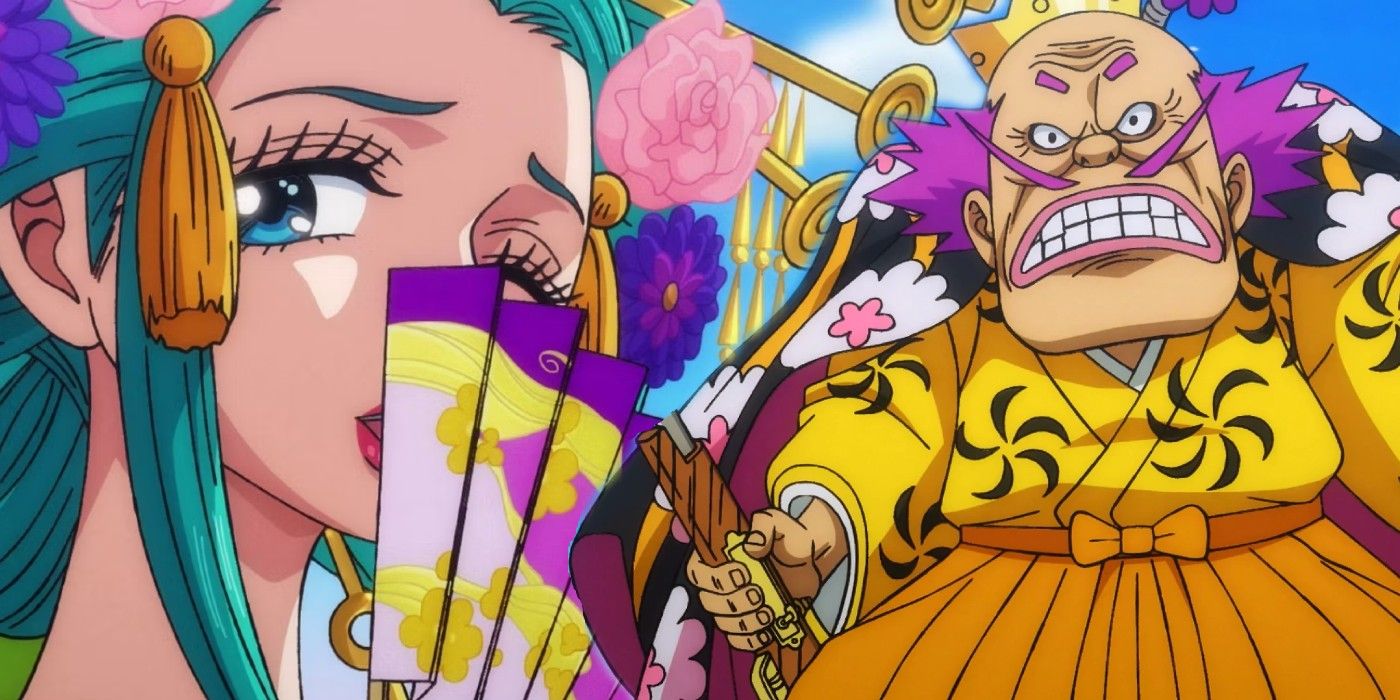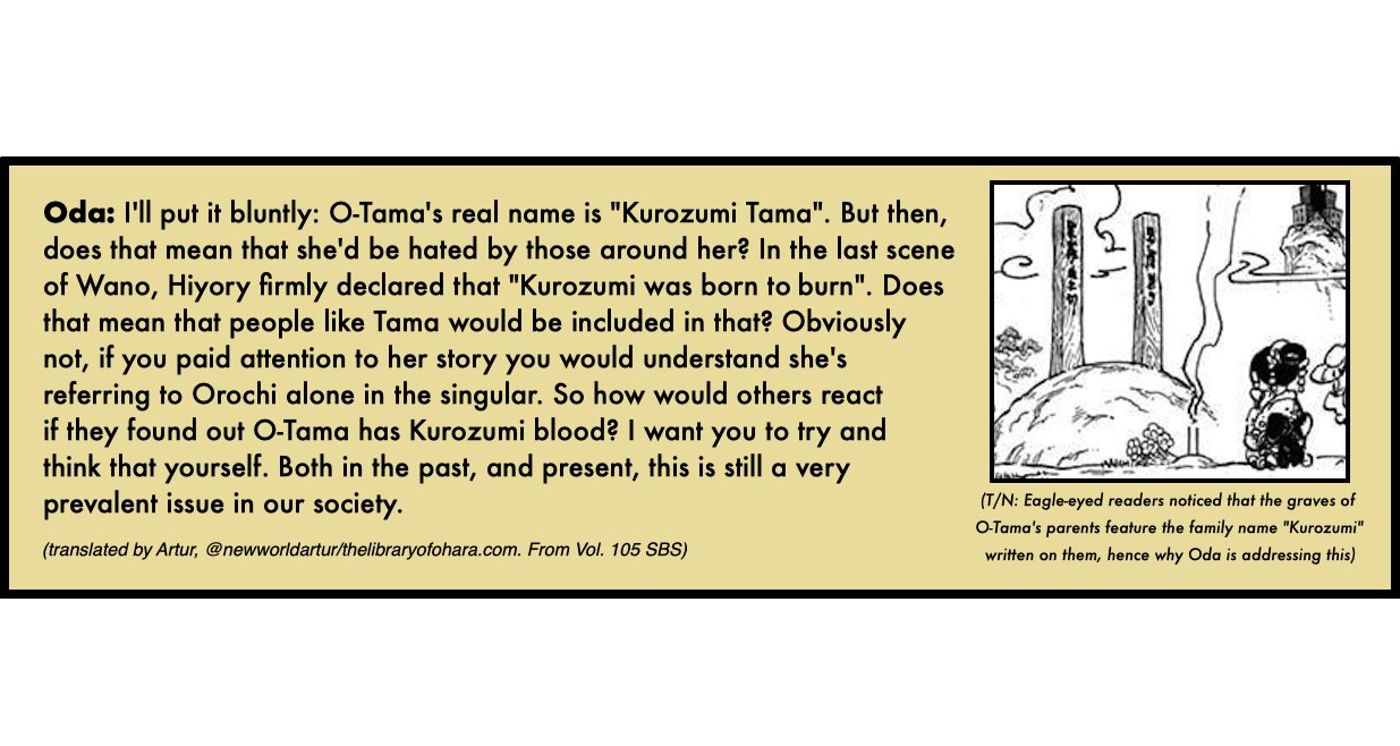The most controversial moment in One Piece's monumental Wano Arc happened at the very end of it when Kozuki Hiyori declared that "Kurozumi was born to burn". This was interpreted in different ways by fans, with some criticizing these words as instigation to hatred. However, One Piece's author Eiichiro Oda has finally cleared the air and explained the true meaning of Hiyori's words.
In the SBS (Oda's Q&A section) published volume #105 of One Piece, kindly translated and shared online by Artur - Library of Ohara, the author answers the question of a fan who noticed that, in a scene where the Wano orphan Tama is praying on the graves of her parents, these feature the family name "Kurozumi" written on them. Kurozumi is the clan of Orochi, the cruel man who betrayed Kozuki Oden and "sold" Wano to the tyrant Kaido, until the Straw Hats (with Tama's precious help) liberated the country. In the SBS, Oda confirms that Tama is a Kurozumi too, but he also specifies that the country's rightful wrath against Orochi should not apply to her too, which finally explains the controversial conclusion of the Wano Arc.
Eiichiro Oda Clarifies The Meaning Of Hiyori's Words At The End Of The Wano Arc
In chapter #1057 of One Piece, the long and momentous Wano Arc ends with a public performance of Hiyori, Kozuki Oden's daughter, who recounts to a captivated audience the 20-years-long struggle of their country, from the death of her father to the toppling of Kaido and Orochi. She reveals that after Orochi was decapitated during the final battle by Denjiro (in chapter #1048), his hatred kept him alive for a few more moments, enough to curse the Kozuki one last time. Hiyori then approached Orochi's burning head, pointed her fan bearing the Kozuki crest at him, and pronounced one last sentence, which serves as closure to the whole Wano story: "Kurozumi was born to burn," a play on words on the name of the Kurozumi clan, which means "black charcoal."
Fans of One Piece immediately started debating this scene, as Hiyori's words could be interpreted as meaning that the whole Kurozumi family had to be considered responsible for Orochi's atrocities, regardless of their actual involvement. Wano Country is, after all, based on feudal Japanese society, where the sins of an individual could fall upon his entire clan or family if he didn't atone personally. However, Oda has used the revelation of Tama's family heritage to clarify that Hiyori was referring to Orochi in the singular.
One Piece Is A Lot Deeper Than It Looks
The author is also aware that this issue goes beyond the meaning of Hiyori's words. In his SBS's answer, Oda leaves to his readers the job of thinking about how the citizens of Wano would react if they found out that Tama has Kurozumi's blood, after being enslaved and oppressed by Orochi and Kaido for twenty years. Oda is aware that this form of discrimination existed in the past and is still an issue today, proving that, beyond the surface of an exciting and funny adventure, One Piece hides a deeper story that is not afraid to tackle tragedy, revenge, and discrimination.
Source: Artur - Library of Ohara.


